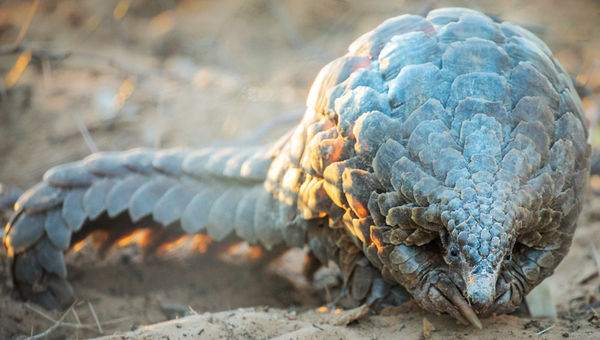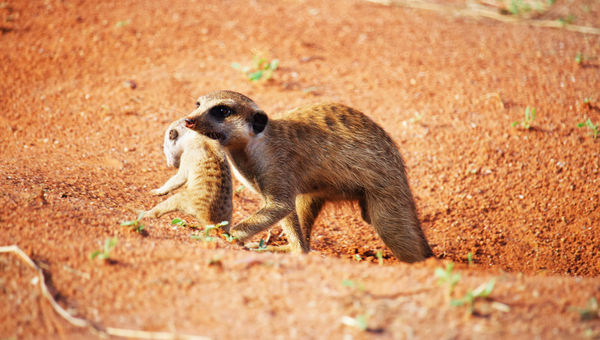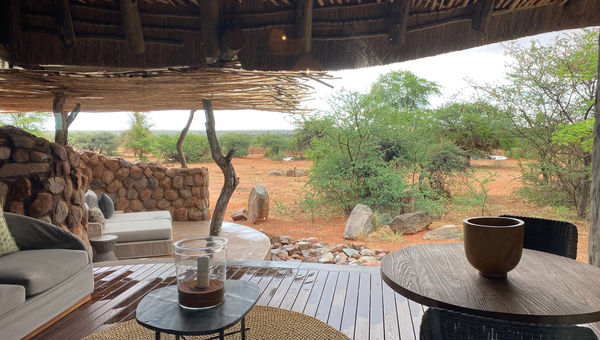For most Americans, safaris that involve the Big Five -- lions, leopards, rhinos, elephants and Cape buffaloes -- remain the most popular choice for viewing African wildlife.
"Most American travelers initially request the wildlife they've seen on popular TV programs like National Geographic," said Jim Holden, president of Holden Safaris.
But there is no question the safari experience has been evolving. Guests, especially repeat guests, are beginning to request a deeper dive into the continent. And Africa offers those visitors far more than just the headliners, executives will tell you.
"There are smaller, unique animals that travelers can see on safari, which are just as fascinating as the Big Five, such as the meerkat colony in Botswana's Makgadikgadi Salt Pans, beautiful bird-watching opportunities such as the hundreds of pink flamingos that flock in Tanzania's Lake Manyara and nocturnal animals that can be spotted on nightly game drives," said African Travel president Sherwin Banda.

The pangolin, often referred to as "Africa's panda" due to its critically endangered status, is considered "the holy grail of wildlife sightings," according to Pangolin Photo Safaris founder Toby Jermyn. Photo Credit: Helena Atkinson
The pangolin: 'Africa's panda'
Some safari outfitters, like Pangolin Photo Safaris, have started crafting experiences that reveal a whole different side of the continent's wildlife.
The company's name itself reflects this philosophy, as founder Toby Jermyn explained: "Everyone else has called themselves Elephant, Tusker or Lion something, but nobody called themselves Pangolin. The nice thing is it starts a conversation right from the beginning: 'What's a pangolin?'
"It teaches people that it's not just about the big stuff."
Often called "Africa's panda" due to its critically endangered status -- it's valued by poachers for its meat and its scaly hide, which is used in traditional medicines -- pangolins are arguably the continent's most elusive creature.
"Pangolins are incredibly difficult to keep track of. They're predominantly nocturnal and shy; many times, I have walked right past a pangolin without even knowing it was there," said Wendy Panaino, an ecologist at South Africa's Tswalu Kalahari Reserve. "They naturally occur in low population densities, and they're only active for about four to eight hours each day."
Jermyn said that where wildlife photographers are concerned, "pangolins are the holy grail of wildlife sighting."
Because of their elusiveness, he said, there are no guarantees that guests will even see a pangolin during their safari. "If a pangolin allows you to see it, that's a special moment," Jermyn said. "You can't train them, you can't habituate them. Enjoy the journey, not just the destination."

Meerkats can offer fascinating wildlife encounters outside of the Big Five. Photo Credit: Dorine Reinstein
But Pangolin offers far more than what the name implies. It was launched in the Chobe area of northern Botswana because, according to Jermyn, "it's one of the best places to do wildlife photography throughout the year. You've got the river, which means it's amazing all year round, even in the rainy or green season, with abundant bird species. And throughout the rest of the year, there's always something to photograph in the Chobe. That's why we started here, though we've since expanded into Namibia, Zimbabwe and beyond."
The company's signature eight-day Chobe and Okavango Delta Photo Safari, based at the Pangolin Chobe Hotel, offers guests an immersive experience. Each guest receives professional-grade equipment to use, along with personalized guidance from expert photo hosts. Between game drives, guests review images and receive practical tips.
This hands-on approach elevates the safari experience, Jermyn said, encouraging guests to truly see the animals and their environment.
"You get people turning up with $40,000 worth of gear they've just bought in Manhattan, no idea how to use it, and by the end of the week, they're creating incredible images," Jermyn said. "More importantly, they're seeing things differently. A monitor lizard in a tree becomes an hourlong photographic study. Baboons, often overlooked on traditional safaris, transform into captivating subjects -- especially early morning when you get that beautiful backlit light through their fur, picking up those chestnut brown eyes."
To protect these vulnerable creatures, Pangolin Photo Safaris developed the Pangolin Guardian program, a free course promoting ethical wildlife viewing. It's a 15-minute, online session available to anyone; Pangolin encourages its guests to complete it before arriving.

A luxury suite at The Motse, a Tswalu Kalahari safari camp. Photo Credit: Dorine Reinstein
Africa's enigmatic inhabitants
Other options exist, as well.
Sustain Safaris' 19-day South African tour visits 10 reserves, from the semi-arid Madikwe Private Game Reserve to the stark beauty of the Karoo, targeting over 75 mammal species, including some of Africa's most enigmatic creatures: aardvarks, honey badgers, black-footed cats and aardwolves.
Sustain's itinerary includes destinations known for exceptional rare species encounters. Their route encompasses diverse habitats: woodlands, savannas, wetlands, grasslands, mountains and cliffs, scrubland and rocky slopes. Each environment offers different opportunities, from nocturnal predator drives at Marrick Safari Park in central South Africa to specialized tours to view sengi (elephant shrews).
For every pangolin sighting on its tours, Sustain donates about $70 per person to conservation organizations.
Tswalu Kalahari, South Africa's largest private game reserve, is home to familiar species like cheetahs, leopards, lions and spotted hyenas. But it also promotes its "Secret Seven": the ground pangolin, meerkat, brown hyena, aardwolf, Cape fox, African wild cat and aardvark.
Russel Binks, a business development and public relations exec with Tswalu, said there has definitely been a surge in interest from the U.S. market for more immersive conservation experiences.
"The trend is moving toward longer, more immersive safaris, where guests want to understand the impact of their stay on biodiversity preservation," he said. These "conscientious contributors," as Binks described them, are looking for a deeper engagement with the ecosystems they visit.
Orchestrating encounters with rare species presents a unique challenge. Even the Big Five can be elusive, but with patience and experienced guides, sightings are often possible. They are less likely with species like the pangolin.
"Tracking elusive, often solitary animals takes time, patience and a sound knowledge of the signs left in the wild," Binks said. "To spend a few minutes in the presence of a pangolin is a truly unforgettable moment."
As Deirdre Opie, head guide at Tswalu, said, "The key is understanding that these aren't typical safari experiences. These animals are not called elusive for nothing. You may wait for a pangolin or aardvark to emerge from its burrow all night. With a pride of lions, you get to know where they like to drink water, which makes their whereabouts slightly more predictable. Nature calls the shots."